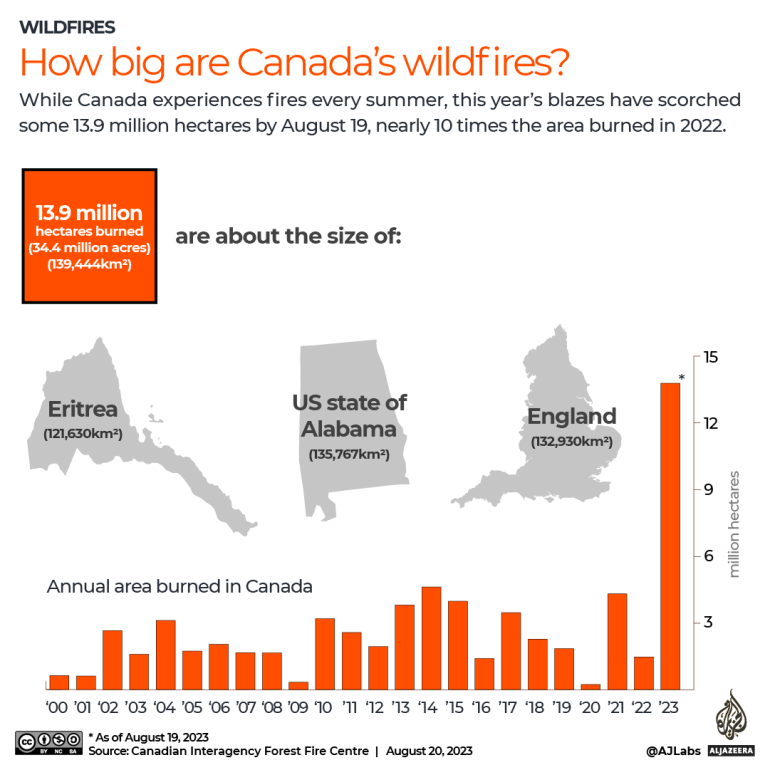PM Justin Trudeau says military to be sent to the fire-hit region with a state of emergency declared in British Columbia.
British Columbia declared a state of emergency on Friday and imposed a ban on non-essential travel to free up accommodations for evacuees and firefighters, and urged drone operators and others capturing images of the fires to stay clear of rescue workers.
Trudeau said in a post on X that the federal government will offer support from the Canadian military “to help with evacuations, staging” and other logistical tasks in response to a request from the British Columbia government.
Canada is grappling with its worst wildfire season on record, with more than 200 fires burning in the nearby province of Northwest Territories.
In some cities in British Columbia, the air quality index (AQI), which measures major pollutants including particulate matter produced by fires, was above 350, a “hazardous” level, IQAir, a real-time air quality information platform showed.
West Kelowna fire chief Jason Brolund said he saw some hope after battling “epic” fires for the past four days. He said conditions have improved, helping firefighters to put “boots on the ground” and dump water on flames that threatened the town of 150,000.
“We are finally feeling like we are moving forward rather than moving backwards, and that’s a great feeling,” Brolund told the Canadian Broadcasting Corporation.
Forest fires are not uncommon in Canada but the spread of blazes and disruptions underscore the severity of its worst wildfire season yet, which some experts have blamed on climate change.
Other fires, exacerbated by severe drought, have been reported closer to the United States border and in the US Pacific Northwest.
Just across the border in Washington state, firefighters battled two major blazes, the Gray Fire and the Oregon Road Fire, which combined had blackened more than 20,000 acres of forest and destroyed more than 100 structures.

In Canada, government officials urged residents in evacuation order zones to leave immediately to save their lives and prevent firefighters from dying trying to rescue them.
Officials have not given any estimates of the total number of buildings destroyed. Videos and photos on social media showed destroyed structures and vehicles, and huge flames consuming trees.
The Canadian government-owned Trans Mountain pipeline and its expansion project, which makes its way to the Pacific coast through the interior of British Columbia, was unaffected by the fires, a company spokesperson said on Sunday.
The Coquihalla stretch of the pipeline expansion, southwest of Kamloops, is the closest to fire.
The fires have drained local resources and drawn in federal government assistance as well as support from 13 countries. At least four firefighters have died.
About 140,000sq km (54,054 square miles) of land, roughly the size of New York state, have been scorched nationwide, with smoky haze extending as far as the US East Coast. Government officials project that the fire season could stretch into autumn because of widespread drought-like conditions.

